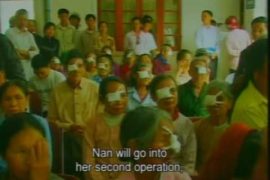1) At the INSS, Ilan Zalayat and Yoel Guzansky analyse ‘The Gulf States and the Israel-Hamas War’.
“With the exception of Qatar, the Gulf states share the goal of ending Hamas’s control of the Gaza Strip, weakening the Iranian-led axis, and dealing a blow to Muslim Brotherhood ideology. However, their main priority is to safeguard the regional detente achieved in recent years, especially vis-à-vis Iran. Therefore, the risks that a regional conflict entail could propel them to prefer a quick end to the conflict over the benefit that could accrue from defeating Hamas.”
2) The ITIC documents ‘Hamas use of the civilian population as human shields and Gaza’s civilian facilities for terrorism’.
“Hamas’ use of civilians and civilian facilities has been more widely exposed and more clearly brought into focus by Operation Iron Swords, which began in Gaza on October 7, 2023, following the barbaric terrorist invasion and massacres carried out by Hamas and other terrorist organizations in the Israeli cities, towns and villages near the border. Every day, the IDF forces operating inside the Gaza Strip expose more instances of the terrorist organizations’ use of the civilian population, especially by Hamas. In addition, a substantial amount information is revealed through questioning of terrorists detained in Israel.”
3) UANI analyses ‘Iran’s Threat to Maritime Security’.
“Iran poses a major threat to freedom of navigation and maritime security around the world. Iran uses the Islamic Revolutionary Guard Corps’ Navy (IRGCN) to challenge global economic security and the broader regional security architecture. Iran has used international shipping companies to transport illegal weaponry for the purpose of building and sustaining its terror proxy networks in the Middle East. It has also attacked commercial vessels and taken vessels hostage to extract concessions from the international community.”
4) At the JISS, Dr. Hay Eytan Cohen Yanarocak discusses ‘October 7 and the Collapse of Israeli-Turkish Normalization’.
“While not approving of the scale of the Israeli response in Gaza but acknowledging the necessity of eradicating Hamas also for their national interests, the Saudis and the rest of the Abraham Accords bloc countries expressed moderate rhetoric vis-à-vis Israel. In the first two weeks of the war, Ankara also initially adopted the same approach. However, later, on October 25 Ankara formally abandoned this balanced approach when the Turkish President, Recep Tayyip Erdoğan, speaking before the Turkish parliament, openly described Hamas as “a freedom fighter organization.””
5) At Alma, Yaakov Lappin discusses a new report concerning UNRWA schools.
“UNRWA, while not producing its own curriculum, supplements the host country’s curriculum with additional materials. A recent analysis highlighted the involvement of numerous UNRWA staff in distributing content that contradicts UN values. Disturbing examples include exercises glorifying acts of terrorism and promoting extremist ideologies. The report scrutinized the role of UNRWA in facilitating and endorsing such educational content, raising concerns about its adherence to its own “zero tolerance policy” for discrimination and incitement to hatred and violence.”
6) David Collier unwraps a recent BBC News website report about Palestinian footballers.
“It seems so benign. A human interest story about Gazan footballers who have been trapped by the conflict and could not play in the Palestine v Australia World Cup qualifier that took place yesterday (Australia won 1-0).”





